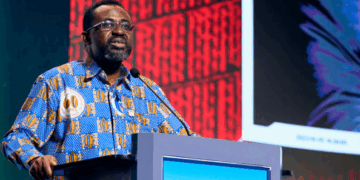Toward the close of our talk, Bill Gates shares updated figures on the amount his nonprofit Foundation has spent so far on eradicating poverty and preventing avoidable diseases.
“I’ve given over 100 billion,” he asserts, “but I still have more to give.”
To be clear, that is in dollars, which are around £80 billion.
That’s about the same as the size of the Bulgarian economy or the price of constructing the entire HS2 route.
It’s comparable to just one year’s worth of Tesla sales, though, to put things in perspective. (Elon Musk, the owner of Tesla, has surpassed Gates as the richest man on the planet.)
Through the Gates Foundation, which he first established with his now-ex-wife Melinda, the co-founder of Microsoft and fellow philanthropist Warren Buffett are pooling their billions.
Gates claims that he was raised with a strong sense of altruism. He heard his mother say that “with wealth came the responsibility to give it away” on a frequent basis.
In May, his foundation will celebrate its 25th anniversary, and Gates told the BBC in an exclusive interview that the sum is $100 billion.
According to him, he likes to donate his wealth, and so far, the Foundation has received about $60 billion of his income.
He doesn’t genuinely perceive the change in his daily life: “I didn’t make any personal sacrifices. I didn’t order fewer movies or hamburgers. Naturally, he is still able to afford his private jet and his numerous enormous homes.
He says he has discussed “a lot” with his three children about how much of his riches he should leave them, but he intends to give away “the vast majority” of it.
When he leaves, will they be impoverished? I ask him. “In absolute terms, they’ll do well, but in percentage terms, it’s not a huge number,” he responds, grinning briefly.
It is evident that Gates is a math whiz. He participated in a four-state regional arithmetic exam in the eighth grade at Seattle’s Lakeside School and performed so well that, at the age of 13, he was among the area’s top high school maths students of any age.
He is accustomed to using math language. In other words, even if you leave your kids a little portion of your wealth, they will still be extremely wealthy if you are worth $160 billion, as Bloomberg’s Billionaires Index asserts.
According to Bloomberg, I am one of just 15 people on the earth who are centibillionaires, or worth over $100 billion. We’re meeting at his childhood home in Seattle, a four-bedroom, mid-century modern home nestled into a hill. He wrote a memoir called Source Code: My Beginnings that focuses on his early years.
What molded a difficult, compulsive kid who didn’t fit in with one of our generation’s IT pioneers is what I want to know.
His sisters, Kristi and Libby, are with him, and they all eagerly show off the house where they were raised. The present owners have renovated it since they last visited, and thankfully, the Gates siblings appear to approve of the modifications.
However, it’s bringing back memories, such as the long-gone intercom system between their mother’s favorite rooms, which they see as they enter the kitchen. According to Gates, she used it to “sing to us in the morning” to entice them to leave their bedrooms for breakfast.
ICYMT: Trump threatens to cut funding for South Africa over land policy
In order for the family to work around her schedule, Mary Gates also set their clocks and watches to eight minutes fast. Although her son frequently objected to her attempts to help him, he now tells me that “that relationship warmed the crucible of my ambition.”
He attributes his competitive nature to his grandmother “Gami,” who frequently visited the family in this home and taught him how to beat the opposition at card games at a young age.
SOURCE: BBC



























